SDGs in the Biology Courses
| SDGs | LAU BIO Courses | Brief Explanation |
|---|---|---|
|
SDG2 Zero Hunger 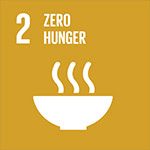 |
BIO101, BIO201, BIO201B | The biology curriculum significantly contributes to SDG2 (Zero Hunger) by providing students with a comprehensive understanding of biological principles crucial for addressing global food security challenges. Through a combination of introductory and advanced courses, as well as hands-on laboratory work, students explore concepts such as ecosystems, biodiversity and sustainable agriculture. This knowledge equips them with the skills needed to contribute meaningfully to efforts aimed at achieving Zero Hunger. The Biology Program fosters an understanding of the interconnectedness of biological processes, paving the way for innovative solutions and sustainable practices in agriculture and food production. |
|
SDG3 Good Health and Wellbeing 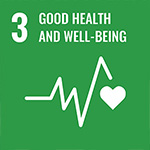 |
BCH300, BCH301, BIO101, BIO200, BIO201, BIO201B, BIO202, BIO202B, BIO209, BIO260, BIO261, BIO311, BIO312, BIO321, BIO322, BIO331, BIO343, BIO344, BIO345, BIO345B, BIO401, BIO401H, BIO410, BIO420, BIO488HB, BIO488HE, BIO488HL | The biology courses offered in our program significantly contribute to SDG3 (Good Health and Wellbeing) by providing students with a solid foundation to address global health challenges. Ranging from introductory to advanced levels and complemented by hands-on laboratory work, these courses deliver a comprehensive understanding of essential biological principles. Covering areas such as genetics, physiology and disease prevention, the curriculum equips students with knowledge vital to the promotion of human health. By delving into the theoretical underpinnings of medical technologies and advancements, including diagnostics and treatment methods, the Biology Program prepares students to actively participate in the ongoing development of innovative healthcare solutions. This approach ensures that graduates are well-prepared to contribute meaningfully to the improvement of global well-being in line with SDG3. |
|
SDG4 Quality Education 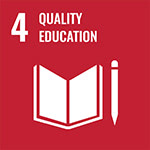 |
BIO321, BIO322, BIO488HE | The biology courses within our program align seamlessly with SDG4 (Quality Education), playing a crucial role in providing students with a well-rounded and impactful learning experience. By emphasizing critical thinking, problem-solving and practical skills, the Biology Program contributes directly to the goal of quality education. Graduates are equipped not only with a deep understanding of biological sciences but also with the skills necessary to address complex challenges and contribute meaningfully to education and research in the field. This commitment positions the Biology Program as a cornerstone in promoting quality education and nurturing a new generation of well-prepared and innovative thinkers. |
|
SDG6 Clean Water and Sanitation 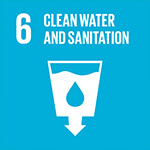 |
BIO311, BIO312, BIO420 | The biology courses in our program are pivotal in addressing SDG6 (Clean Water and Sanitation) by providing students with the essential knowledge to contribute to sustainable water management. Covering a range of topics such as virology and microbiology, these courses offer insights into the dynamic relationships between living organisms and water ecosystems. The curriculum explores biological processes influencing water quality and the conservation of aquatic environments. By delving into these aspects, the Biology Program prepares students to actively contribute to the development of strategies ensuring clean water access and promoting sanitation practices. Through theoretical understanding and practical applications, graduates emerge with the skills necessary to contribute effectively to the preservation of water resources, aligning with the objectives of SDG6. |
|
SDG9 Industry, Innovation and Infrastructure 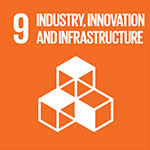 |
BIO410, BIO488HL, BIO600 | TThe biology courses within our program contribute significantly to SDG9 (Industry, Innovation, and Infrastructure) by fostering a foundation for scientific innovation and technological advancement. Covering courses, such as biotechnology, provides students with a robust understanding of the biological underpinnings essential for cutting-edge advancements. The curriculum encourages a forward-thinking approach, emphasizing the integration of biological knowledge into innovative solutions for various industries. Through theoretical exploration and hands-on experiences, students gain the skills needed to contribute to the development of novel technologies and advancements in infrastructure. The Biology Program prepares graduates to play a key role in driving innovation across industries, aligning with the objectives of SDG9 and promoting sustainable development through scientific progress. |
|
SDG12 Responsible Consumption and Production  |
BIO613 | The biology courses offered in our program contribute significantly to SDG12 (Responsible Consumption and Production). Our courses equip students with the knowledge necessary to address challenges related to responsible consumption and production. The curriculum emphasizes the impact of human activities on the environment and explores strategies for mitigating negative effects. Through theoretical insights and practical applications, students develop a heightened awareness of the interconnectedness between biological systems and responsible resource utilization. The Biology Program prepares graduates to actively engage in promoting sustainable practices, fostering responsible consumption and contributing to environmentally conscious production methods, aligning with the goals of SDG12. |
|
SDG13 Climate Action  |
BIO613 | The biology courses in our program play a crucial role in supporting SDG13 (Climate Action) by providing students with a comprehensive understanding of the impact of biological systems on climate and ecosystems. Our courses equip students with the knowledge to address climate-related challenges. Through theoretical insights and practical applications, students develop the skills to contribute to climate action efforts, fostering an understanding of the role biology plays in sustainable environmental practices. The Biology Program prepares graduates to actively engage in promoting climate resilience and mitigation, aligning with the objectives of SDG13. |
|
SDG14 Life Below Water 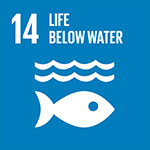 |
BIO201, BIO201B, BIO202, BIO202B, BIO345, BIO345B, BIO401, BIO401H, BIO410 | The biology courses within our program contribute significantly to SDG14 (Life Below Water) by delving into the study of aquatic ecosystems and marine biology. Our courses provide students with a profound understanding of the intricate relationships within marine environments. The curriculum explores the challenges facing marine life and ecosystems, emphasizing the importance of biodiversity and sustainable conservation practices. Through theoretical insights and practical experiences, students gain the knowledge and skills to contribute to the preservation of life below water. The Biology Program prepares graduates to actively engage in marine conservation efforts, aligning with the objectives of SDG14 and promoting the health and sustainability of aquatic ecosystems. |
|
SDG15 Life on Land 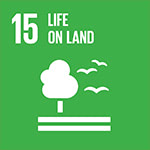 |
BIO201, BIO201B, BIO202, BIO202B, BIO321, BIO322, BIO345, BIO345B, BIO401, BIO401H, BIO410 | In our biology program, we recognize the vital role our courses play in championing SDG15 (Life on Land) by immersing students in the study of terrestrial ecosystems and biodiversity. Engaging with subjects like conservation biology, ecology, and environmental science, these courses cultivate a deep understanding of the delicate balance sustaining life on land. The curriculum explores the challenges faced by terrestrial ecosystems, emphasizing the urgency of biodiversity preservation and sustainable land management practices. Students not only acquire the knowledge but also develop the skills to actively contribute to the conservation of life on land. As part of the Biology Program, graduates emerge ready to play a crucial role in safeguarding terrestrial ecosystems, aligning seamlessly with the objectives of SDG15 and promoting a flourishing, sustainable environment on Earth. |
The Lebanese American University takes pride in the pivotal role played by its Biology Program in advancing the United Nations Sustainable Development Goals (SDGs). The intricacies of biological sciences are fundamental to addressing global challenges, and our program is crafted to equip students with the knowledge and skills needed for meaningful contributions. As we navigate the complexities of the biological world, our curriculum embraces a hands-on, problem-solving approach, encouraging students to bridge theoretical understanding with practical applications. This commitment positions the Biology Program as a driving force in promoting sustainability, addressing issues ranging from health and education to water, climate and terrestrial ecosystems. With a focus on interconnectedness and real-world impact, our program stands as a catalyst for positive change, shaping future leaders and contributors to a sustainable and equitable world.
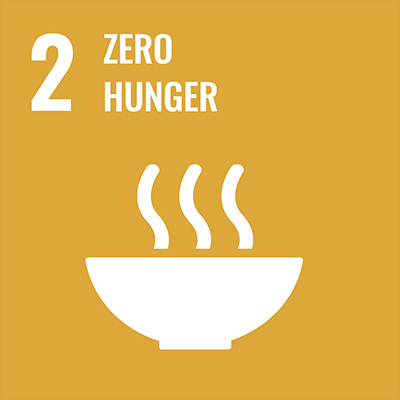 3
3
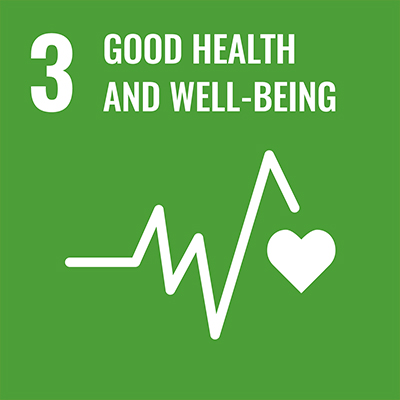 20
20
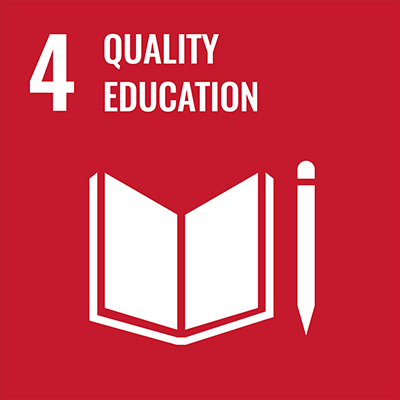 3
3
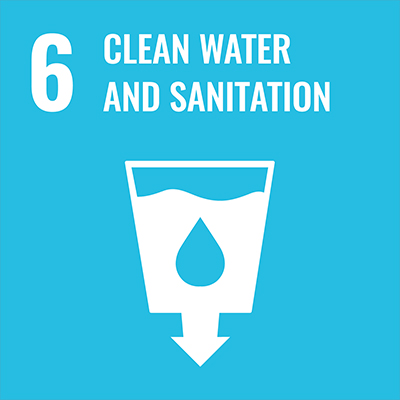 3
3
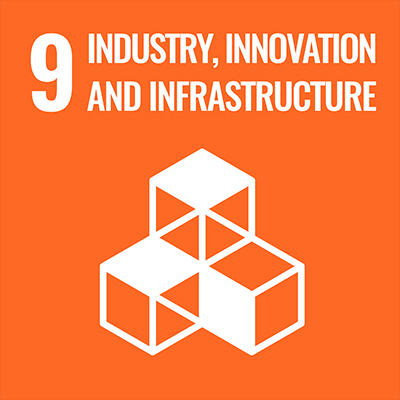 3
3
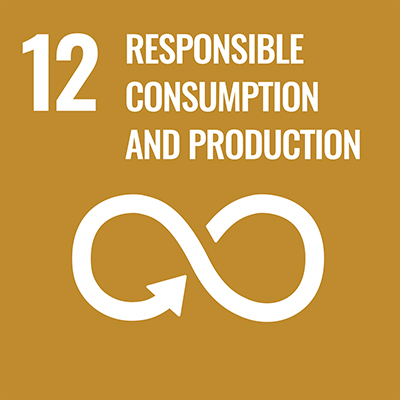 1
1
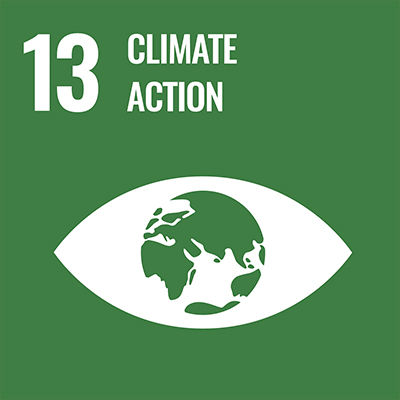 1
1
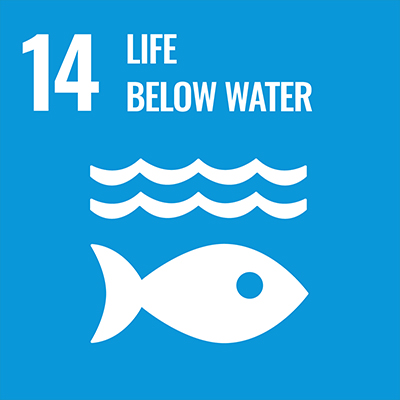 9
9
 11
11